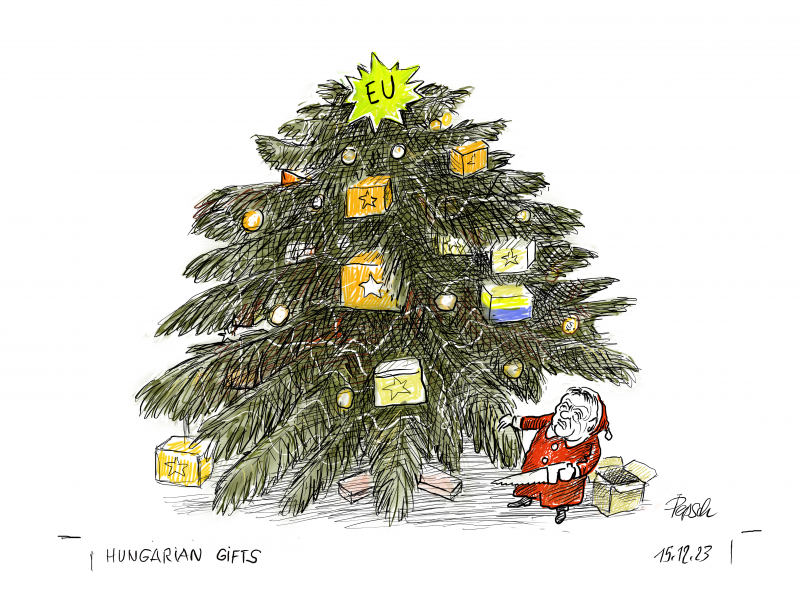A new phase of European Union enlargement has begun. On 15 December, at their last summit of the year, the EU-27 reached an agreement to open accession talks with Ukraine and Moldova, and to grant candidate status to Georgia. While it will still take several years for the three countries to actually join the European family, the announcement was nonetheless described as "historic" and a "victory for all of Europe".
The decision seems to have taken everyone by surprise - European leaders included. Hungarian Prime Minister Viktor Orbán had repeatedly signalled his objections to Ukraine joining the European Union. In the end, he did not use his right of veto, preferring to leave the room during the vote, thus enabling a unanimous agreement to be reached. He did, however, return to oppose the adoption of the Ukraine Facility, an aid package worth 50 billion euro, to be distributed between now and 2027.
The reasons behind the Hungarian leader's actions are not yet entirely clear. Some link it to the release, a few days earlier, of 10.2 billion euro in European funds for Hungary, a sum supposed to reward the judicial reforms initiated by the country. However, the European Commission firmly denied that this was an exchange of goodwill.
Do you like our work?
Help multilingual European journalism to thrive, without ads or paywalls. Your one-off or regular support will keep our newsroom independent. Thank you!












